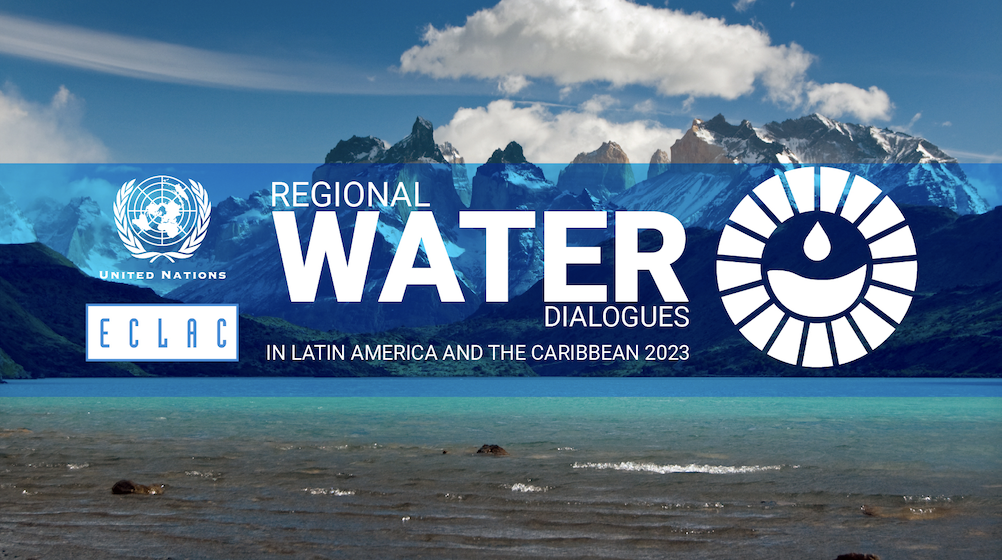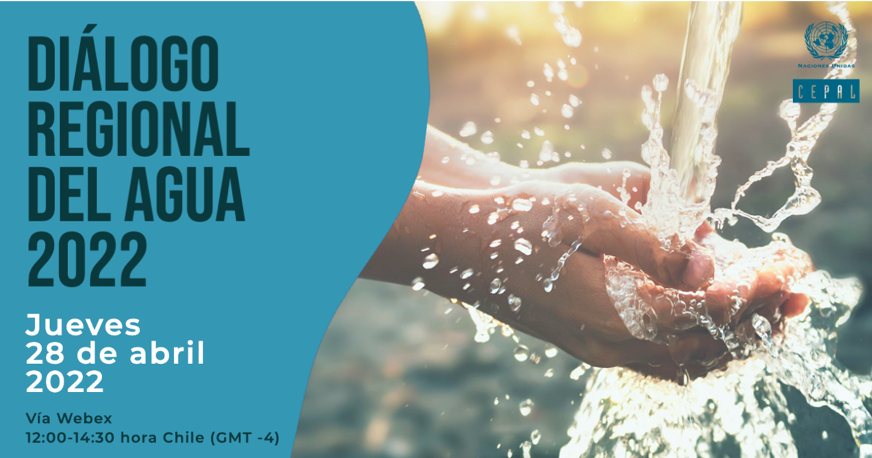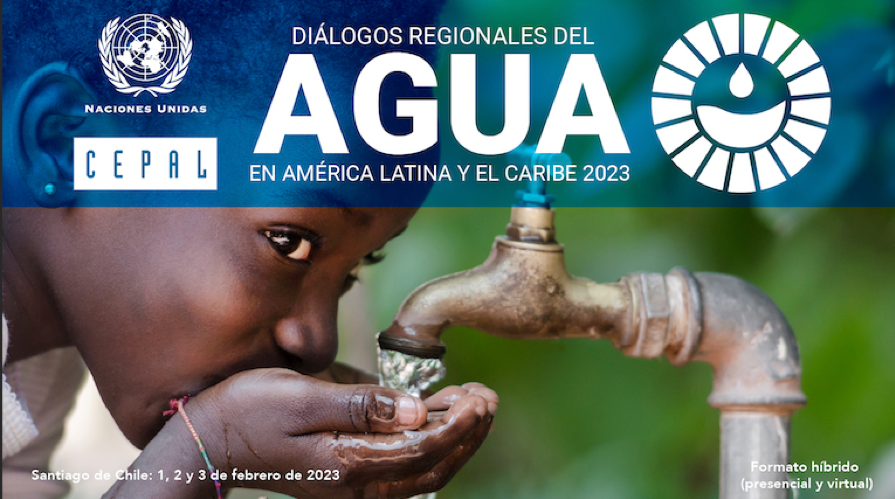ECLAC participated at the event “Women in Water Latin America and the Caribbean/Position Statement for a Regional Action Agenda” during the United Nations Water Conference
Work area(s)
Topic(s)
Last Friday, March 24, 2023, the Natural Resources Division participated in the side event led by the Community of Women in Water (CWiW), in New York, United States.

The side event “Women in Water Latin America and the Caribbean/Position Statement for a Regional Action Agenda” was developed in person on Friday, March 24, and its objective was to hold the first regional meeting of Latin American women united by water. This, in order to identify and strengthen ties for the generation of networks and the establishment of a regional gender and water agenda.
ECLAC participated in the event as a co-organizer along with the participation of various organizations that work on the issue of gender and water. Among them is the Valuing Water Initiative of the Government of Netherlands, the Rio Grande Basin Council, the Fundacion Futuro Latinoamericano, Fundación Suwo Di/Youth Network for Water Central America, the Coastal Solutions Fellows Program of the University from Cornell, the Cooperativa de Aguas el Patagual Ltda. ., Red Agua of Ecuador, the Mexican Hydraulic Association (AMH), and UNESCO with the Intergovernmental Hydrological Program for Latin America and the Caribbean (PHI-LAC).
The ECLAC presentation was given by Ms. Silvia Saravia from ECLAC, who presented the diagnosis of gender and water in LAC. She pointed out that ECLAC identifies 4 main gaps: i) gap in access and infrastructure for water and sanitation, which is directly related to health and education; ii) gap in water collection and management, which impacts women's use of time and ultimately their job opportunities, iii) gap in access to water for agricultural production with an impact on food security and iv) the gap related to governance, with an effect on collective management.
Based on this diagnosis, Saravia Matus presented the opportunities and recommendations that ECLAC envisions, including: incorporating projects aimed at promoting equity and social inclusion, highlighting the importance of investing capital and knowledge for rural women in agricultural activities; investment for the incorporation of gender perspective in water management, which is associated with high profitability and offers economic, social and environmental benefits, especially in rural areas; disaggregate data by sex; implement monitoring and evaluation processes with indicators with a gender perspective; and finally, create training and awareness programs on the subject.
Finally, Saravia Matus shared the Regional Water Action Agenda, which was the main result of the 2023 Regional Water Dialogues, which constitutes a call to action to mobilize all the political, technical and financial resources of the region. This Agenda includes the main voluntary commitments expressed by LAC countries, civil society, and regional institutions and organizations. Its areas of action are i) the democratic governance of water, ii) the adoption of Integrated Water Resources Management (IWRM) to increase resilience to climate change and mitigate the impact of disasters, iii) the adoption of innovative investment and the formation of public-private alliances, including civil society and local communities, and iv) harmonization of political processes for decision-making, monitoring and management of shared transboundary waters and recognition of community management and of indigenous peoples, for the creation of inclusive alliances for water.
Subsequently, UNESCO presented several gender and water initiatives led by its institution. Gloria Alvarado, Diana Ulloa and Geisel Sánchez from the Latin American Youth Coalition gave the presentation “Assessing the multiple perspectives on water and gender and the intergenerational empowerment of women in Latin America”. Finally, Marissa Mar Pecero, from the Community of Women in Water, described the necessary commitments to accelerate gender equality in the regional water space.
Related content

ECLAC will bring the voice and commitments of Latin America and the Caribbean to the United Nations Water Conference
Next week the United Nations Water Conference will take place in New York, an event that has not been held since 1977. Here, ECLAC will be participating in different events to highlight the needs and…

The Regional Water Dialogues 2023 in Latin America and the Caribbean
Save the date! Within a week (February 1-3), ECLAC will host the Third Edition of the Regional Water Dialogues of LAC, as a preparatory process for the 2023 United Nations Water Conference.

ECLAC publishes Progress report on regional preparatory process of Latin America and the Caribbean for the mid-term review of the International Decade for Action, "Water for Sustainable Development 2018-2028" and the United Nations Water Conference 2023
The report, containing information on the initiatives of the countries of the region as well as ECLAC’s proposal to promote the acceleration of the achievement of SDG 6, is presented in the framework…

Great success: the 2023 Regional Water Dialogues organized by ECLAC had a high turnout and managed to establish a Water Action Agenda for Latin America and the Caribbean
During the past week, ECLAC organized the Third Edition of the Regional Water Dialogues in LAC, which are part of the regional preparatory process for the 2023 United Nations Water Conference.